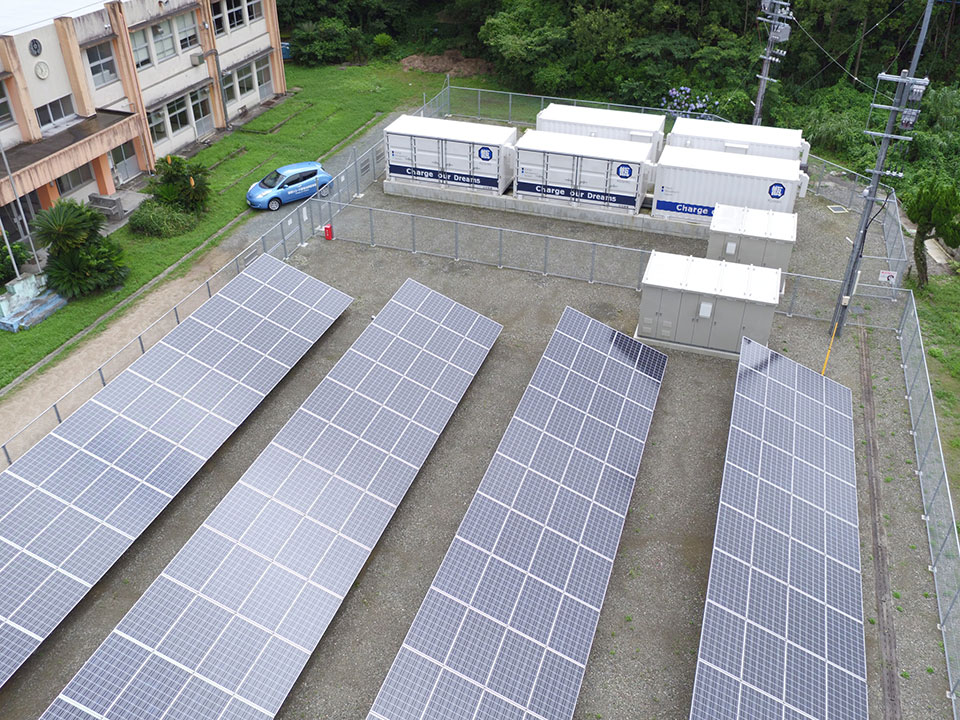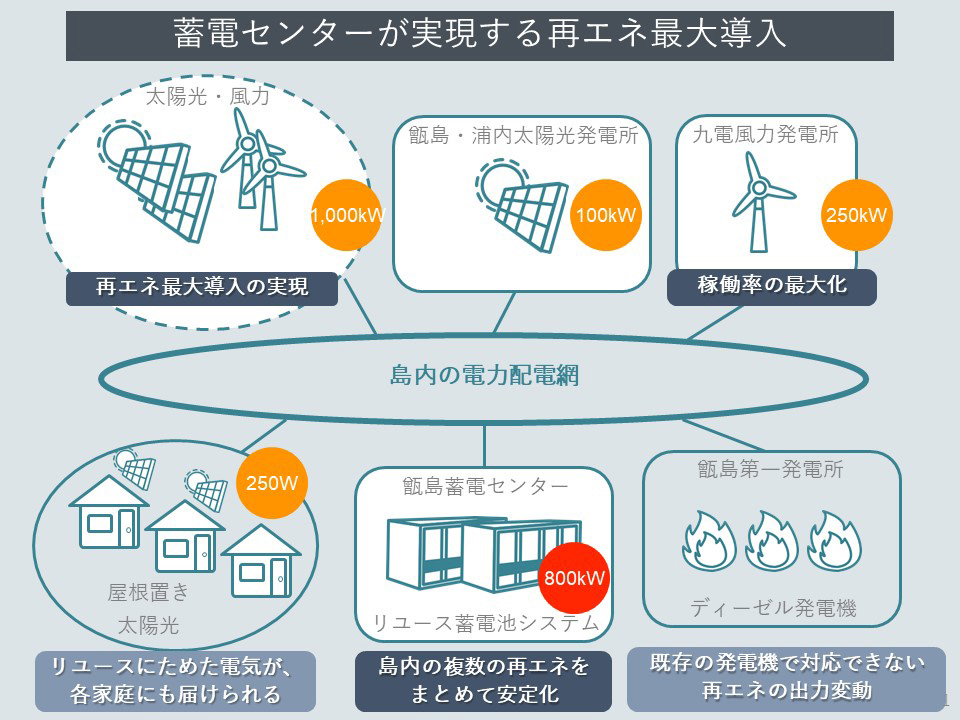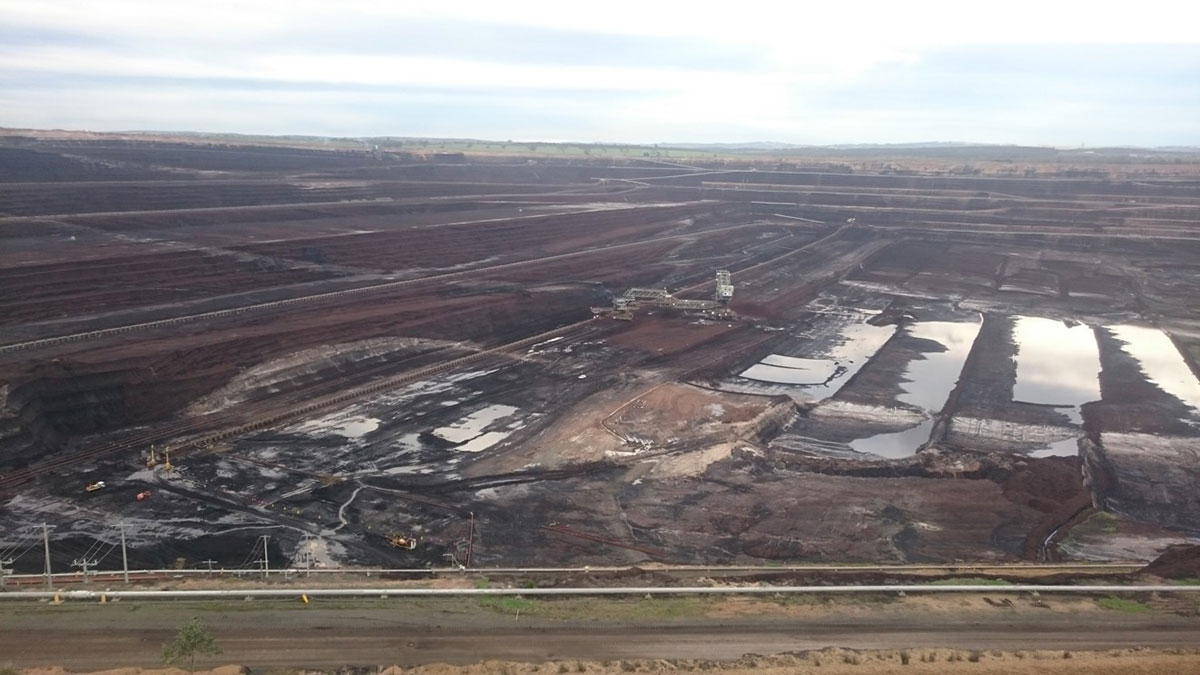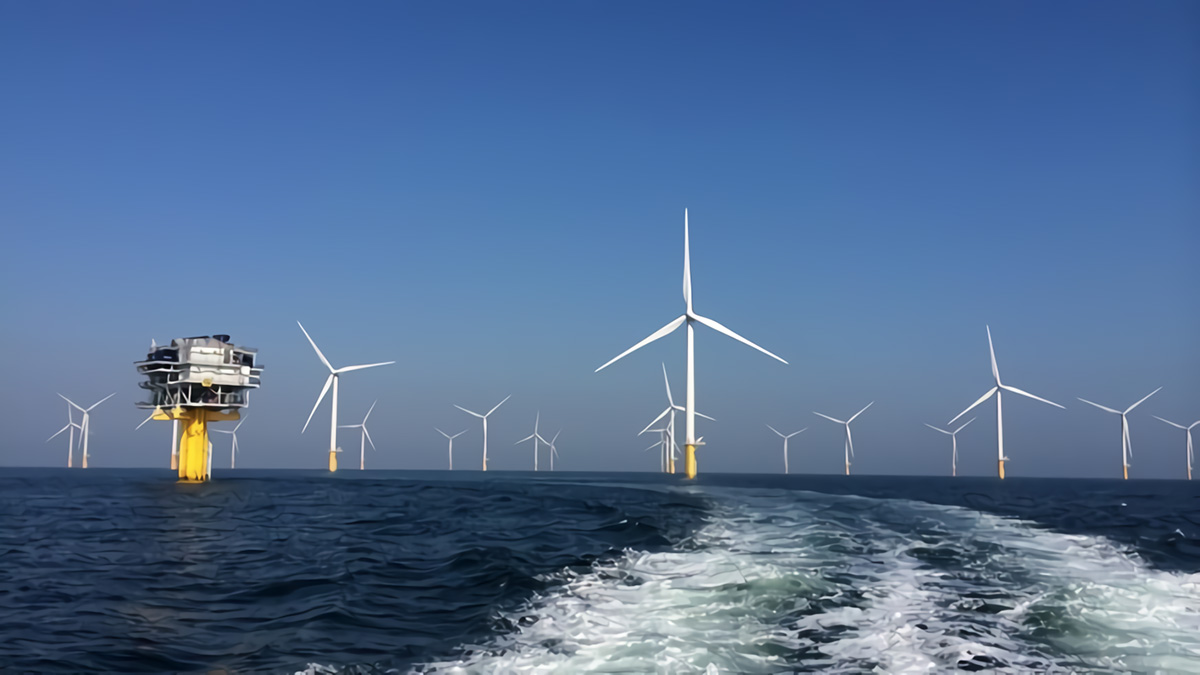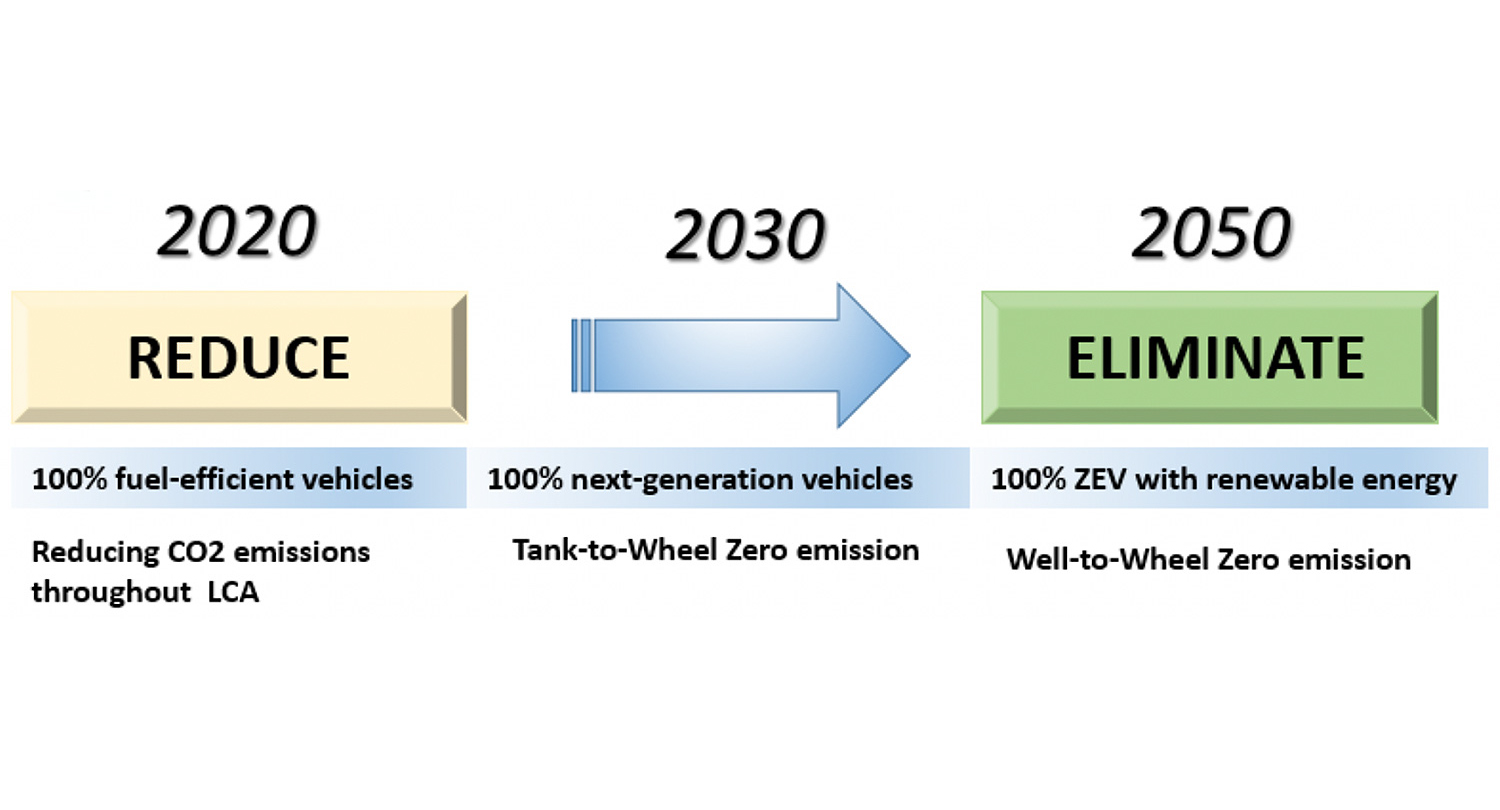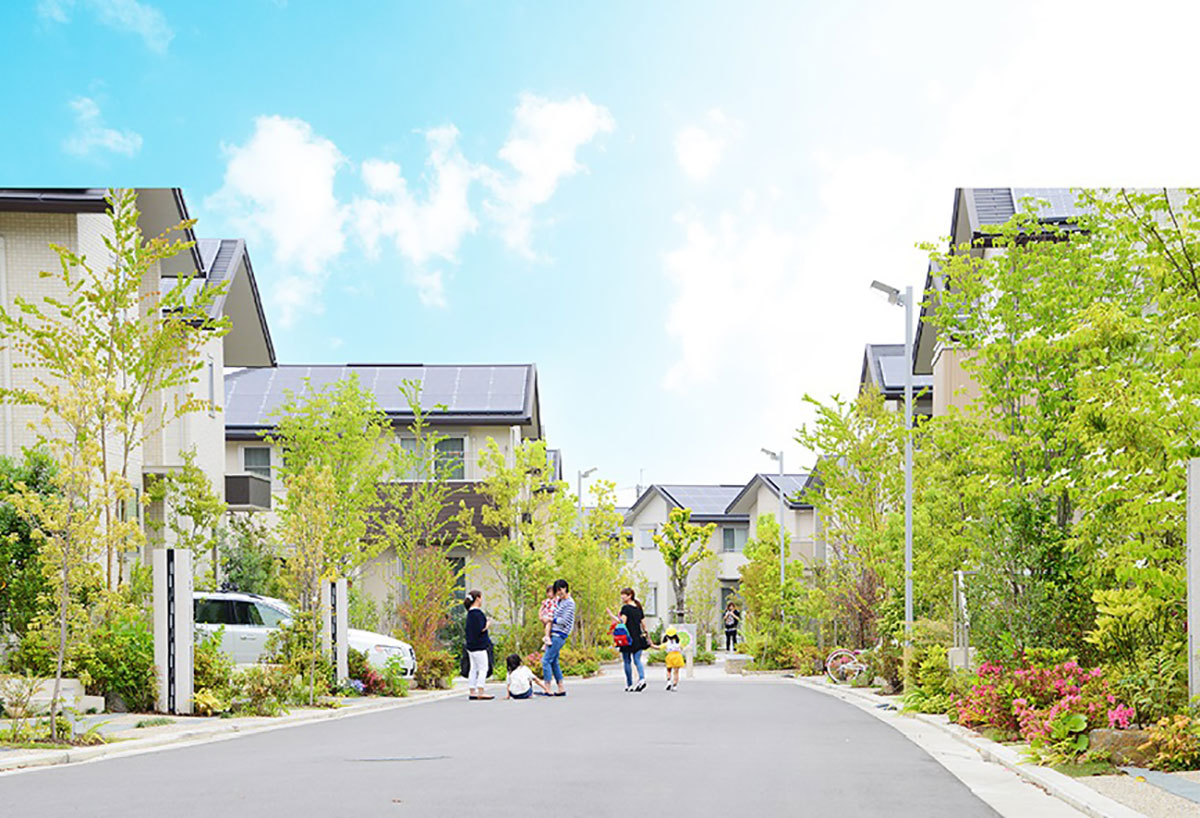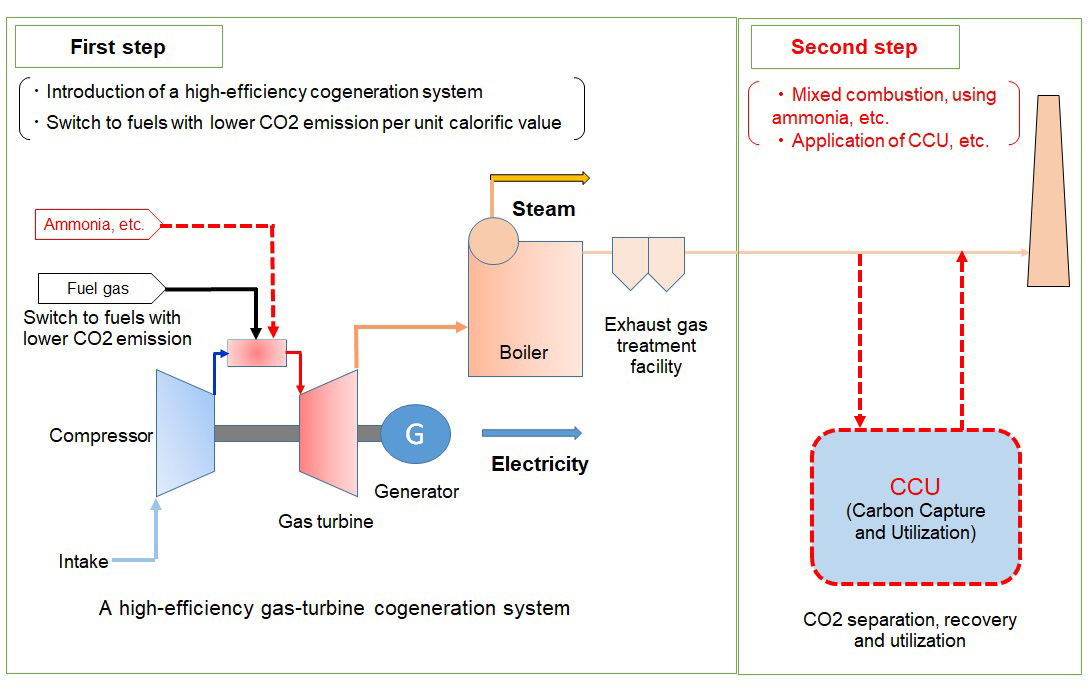Construction of a locally generated, locally used energy model on Koshiki Island
SUMITOMO CORPORATION
Outline
The fluctuation of renewable energy outputs will affect directly the balance of electric power supply and demand especially on the small-scale grid of remote islands because such islands are isolated from a buffer of the mainland grids. Therefore, introducing renewable energy has been difficult on small, remote islands.
Sumitomo Corporation started to develop a business model for providing an environment for connecting renewable energy by collaborating with the local government of one such grouping of remote islands, the Koshiki Islands in Satsumasendai, Kagoshima. In this project, we located a new renewable system and an independent power storage system on the athletic field of the former Urauchi elementary school. The Koshiki-shima Urauchi Solar Farm will have a generation capacity of 100 kW. Meanwhile, the new Koshiki-shima Power Management Center, built from reused batteries taken from electric vehicles (EVs), will have a large-scale storage capacity of 800 kW. We plan to develop our new business model where the battery storage system contributes power supply-demand management for the grid stability.
On the most remote islands, electric power relies on diesel generators currently. The local area is therefore having to cope with the twin issues of large carbon dioxide emissions along with high fuel transportation costs. If we can replace some of these diesel power generators with renewable energy, we can greatly reduce the amount of carbon dioxide emitted on the Koshiki Islands. The realization of this model will also lead to a more stable power infrastructure for these remote islands, which often experience power outages caused by typhoons and other disasters, and this will contribute to the enhancement of disaster countermeasures for the community.
Description
In this project we will develop a new energy management model using power storage systems. As our ultimate goal, we are aiming to establish a new business.
One of the crucial points in this project is the utilization of inexpensive used EV batteries. Currently, power storage is still costly, and the high price has been a major hurdle for constructing power storage systems. However, by utilizing used EV batteries that have once completed their service life in vehicles, we can create a second life for them in the power storage systems at an economical cost.
In 2013, Sumitomo Corporation commenced an experimental trial in partnership with 4R Energy Corporation (a joint business with Nissan Motor Co., Ltd.) to verify a large-scale power storage system utilizing reused EV batteries in Yumeshima, Osaka. Technological verification of the system, the first of its kind in the world, was achieved. For the Koshiki Islands we expanded the scale of the design used for this experimental trial and to construct highly economical power storage systems by reusing batteries from 36 Nissan LEAF EVs.
In this project we will take on the challenge of connecting power storage systems to the electrical grid independently. Since multiple sites of renewable energy in the region are connected to a single distribution network, more effective adjustment of the renewables' fluctuation at the site of grid network will be achievable compared to placing power storage systems at each individual renewable site. We wish to provide an infrastructure to connect as much renewable energy as possible to the islands by the effective use of the power storage system in the grid network, under technological support from Kyushu Electric Power Co., Inc.
Until now, no independent battery system in the Japanese grid network has been able to provide a stabilization service to renewable power suppliers. In order to successfully transform this project into a new business model, we need to engage in efforts to organize institutional studies to deal with new power-related businesses and to build a scheme for business transactions. By launching this project on the Koshiki Islands and developing the business of energy management using power storage, Sumitomo Corporation hopes to contribute to the spread and expansion of renewable energy as an industry pioneer.
As the owner of this project, Sumitomo Corporation pursues the creation of new value in the area of power and energy by bridging two key technologies, EV and renewable energy, to realize a low-carbon society. Using this project as a showcase, we also wish to contribute to the vitalization of the local economy.
Energy management centering on power storage is not only useful for small, remote islands in Japan and overseas, but is also suited to residential areas in the Japanese mainland where the issue of how to expand the installation of renewable energy is being addressed. To achieve this objective, it is important to further develop the business to make it sustainable over the long term by contributing to society and the environment while simultaneously creating a scheme for generating stable revenues.
Using this project as a stepping-stone, Sumitomo Corporation will develop a new energy management business to offer power stabilization and ancillary services using power storage. In the future, we wish to contribute to the realization of a sustainable society through the spread and expansion of renewable energy by deploying this business in various regions, including remote islands of overseas countries, emerging economy countries that are struggling with supply-demand balance adjustment issues, and in the U.S. and Europe, where the liberalization of the power sector is already advanced.
Partner(s)
Satsumasendai City (Kagoshima Prefecture, Japan)
Supplementary information
See our company Home Page:
https://www.sumitomocorp.com/ja/jp/business/case/group/project_infra01
Other Innovation Challenges
Fossil Fuel plus CCS based CO2 Free Hydrogen (Blue Hydrogen) Supply Chain Development
SUMITOMO CORPORATION
Similar Innovation Challenges
Achieve 2050 decarbonization target with Net Zero Energy House!
Sekisui House, Ltd.
Achieving net-zero emissions by promoting renewable energy use through both our monozukuri and products.
DAIWA HOUSE INDUSTRY CO., LTD.



